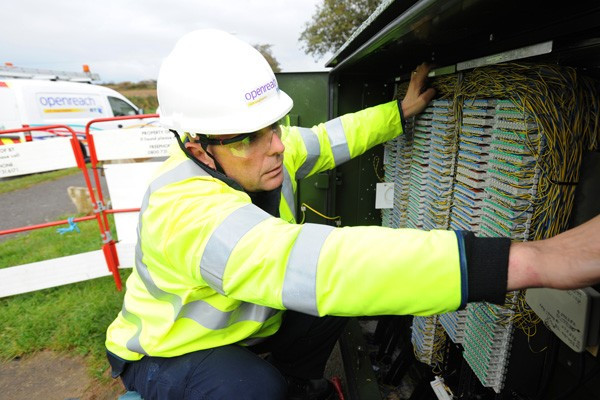MPs Blast Deployment of Rural Broadband Programme
The Broadband Delivery UK (BDUK) programme has been strongly criticised in a report from the Public Accounts Committee for giving BT a virtual monopoly.

The Public Accounts Committee has published a 64-page report based on its investigation into the rural broadband programme concluding that it "failed to deliver the intended competition for contracts, with the result that BT has strengthened its already strong position in the market."
The Department for Culture, Media and Sports which is overseeing the programme, is accused of having accepted terms which were "overly generous" to BT and it also failed to secure access to all the details from BT regarding pricing, coverage and timescale in order to ensure it was getting competitive bids and value for money.
BT will benefit to the tune of £1.2 billion in public money by the end of the process, having spent just £356 million itself, well below the £563m in capital funding which the Department had anticipated BT would contribute. On the other hand, local authorities have contributed £236 million more to the project than predicted.
Labelling the assumptions from the Department as "wildly inaccurate" the PAC recommended that the £250 million the government has earmarked for broadband rollout beyond 2015 should not be spent until some changes are made.
Improvements
"Before contracts are awarded for additional broadband coverage from 2015, using the additional £250 million, the Department should improve its modelling work and, when negotiating levels of private sector investment, the Department should push for contributions that take account of the long-term value of the assets to the supplier."
The goal of the £530 million programme, announced in August 2011, was to ensure everyone in the UK had access to at least a 2Mbps broadband connection, while 90% of the country would have access to superfast broadband by 2015.
In June of this year it was announced that the completion date would be delayed by 22 months, though this was partly as a result of an expansion in superfast coverage to 95% of the UK.
Andrew Ferguson, editor of independent broadband site thinkbroadband.com however says the real delay is more like 12 months:
"While there will be many headlines stating the BDUK programme will be 22 months late, if one delves into the data you find out that the 22 months refers to achieving the new target of 95% superfast coverage, which was only announced in July 2013. The original 2011 aim is estimated to be met some 12 months later than originally planned, which in the world of Government procurement is almost something to celebrate."
Monopoly
One of the major problems with the way the programme has panned out is that BT has been given a virtual monopoly. Only two bidders - BT and Fujitsu - were approved by the Department and as of June 2013 BT had won all 26 contracts with local authorities.
With Fujitsu indicating it will no longer be bidding on the contracts, the remaining 18 are now highly likely to go to BT.
The PAC report goes on to criticise the way the contracts were awarded as well as the conditions stipulated by BT which meant that councils were unable to find out what price other local authorities had paid.
"This [lack of transparency] means that other local authorities' negotiating positions are weakened by a lack of comparable cost data against which to assess BT's bid. In addition, the Department does not know how much contingency BT includes in its bids, and estimates vary," the report says.
The PAC recommends that the department should seek a much higher level of transparency before agreeing contracts with BT.
Coverage
While BT is supposed to deliver at least 90% superfast coverage in rural areas, it is difficult to ascertain how close it is to achieving this as "the Department did not secure sufficient transparency from BT about precisely where it intends to roll out superfast broadband within each area."
This makes it difficult for other suppliers from developing proposals for schemes to cover the remaining 10%. While BT said at the PAC hearing in June that it would be willing to publish this data, the report says: "we are very concerned to hear that local authorities and community based organisations have since continued to encounter resistance from BT to publishing detailed roll-out plans."
BT's competitors also have "legitimate concerns" about their ability to "compete effectively", the report says. As part of the programme BT is required to give wholesale competitors access to its physical infrastructure but the conditions attached have deterred other providers from exploiting this access:
"There are also concerns that existing regulation has allowed BT to set its wholesale price too high, so alternative suppliers find the margin between wholesale and retail prices is squeezed to the extent that they cannot operate profitably."
© Copyright IBTimes 2025. All rights reserved.





















